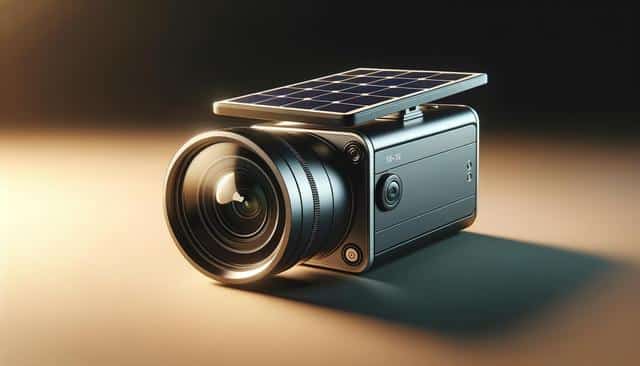Understanding Solar Cameras
Solar cameras are a type of security camera that is powered by solar panels, making them an attractive option for locations lacking traditional power sources. These devices capture energy from the sun, converting it into electricity to power the camera and its associated features. This reliance on solar energy makes them particularly appealing for remote areas, or areas where running electrical wiring is impractical or costly.
Installation and Placement
One of the key advantages of solar cameras is their ease of installation. Unlike traditional security cameras, solar cameras do not require extensive wiring, allowing for flexible placement. This flexibility is perfect for those seeking to cover large properties, such as farms or construction sites, without the need for additional infrastructure. However, to ensure optimal functionality, it is crucial to place the camera in a location with ample sunlight exposure to charge the solar panels effectively.
Performance and Reliability
The performance of solar cameras largely depends on the amount of sunlight they receive. In areas with consistent sunlight, these cameras can be highly reliable, maintaining power and functionality throughout the day. Concerns may arise in regions with frequent overcast days or limited daylight hours, where the charging capacity and battery life could be impacted. Many models come with backup batteries, ensuring continuous operation even when sunlight is insufficient. It’s important to choose a model with high battery capacity if consistent reliability is a priority.
Who Should Consider Solar Cameras?
Solar cameras are ideal for individuals and businesses looking to implement surveillance in areas where conventional power options are unavailable or impractical. They are also suitable for environmentally conscious users looking to reduce their carbon footprint. Key audiences who might benefit include:
- Rural property owners seeking to monitor large, off-grid areas.
- Construction site managers needing temporary, flexible surveillance solutions.
- Environmentally-focused consumers who prioritize sustainable energy solutions.
Cost Considerations
While the initial investment in solar cameras can be higher than traditional wired cameras, the long-term savings on electricity bills can offset this cost. Additionally, the lack of wiring reduces installation costs significantly. For budget-conscious buyers, it is crucial to weigh the upfront costs against potential savings and the specific needs of their surveillance setup. Some users may find that the convenience and sustainability benefits justify the initial expenditure.
Conclusion
Solar cameras present a practical and sustainable solution for surveillance needs, especially where traditional wiring is not feasible. Their ease of installation and potential for reducing electricity costs make them an attractive option for a variety of users. However, their effectiveness is contingent upon adequate sunlight exposure, and potential buyers should consider this when evaluating their suitability. Ultimately, solar cameras are well-regarded for their innovation and ability to provide surveillance solutions in challenging environments.
